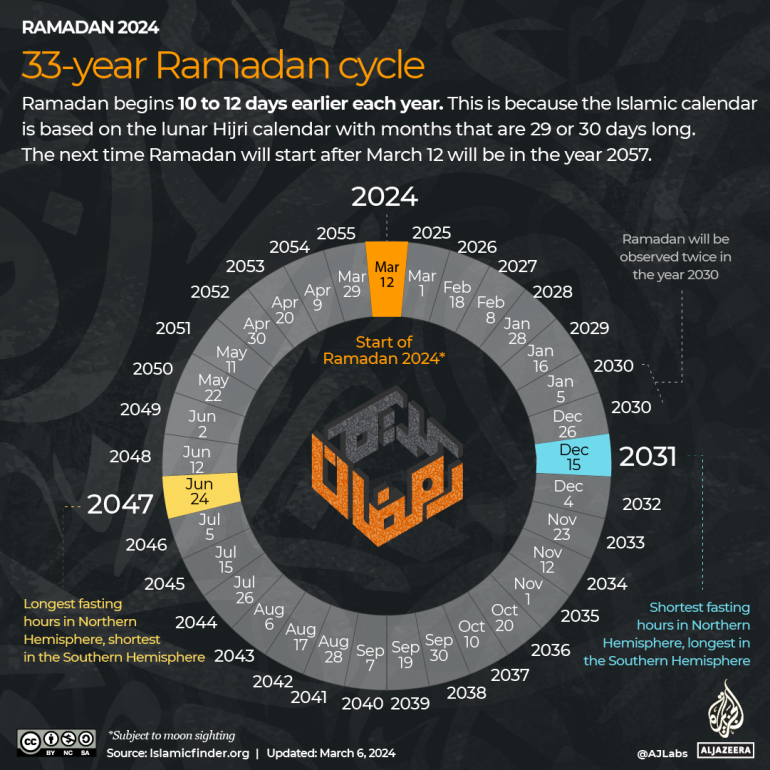Following the sighting of the crescent by the moon-sighting committee, Saudi Arabia has announced that the first day of fasting will be Monday, March 11.
The dawn-to-dusk fast lasts anywhere from 12 to 17 hours, depending on which part of the world you are in.
Muslims believe that Ramadan is the month when the first verses of the holy book Quran were revealed to the Prophet Muhammad more than 1,400 years ago.

What is Ramadan and its significance?
Ramadan is the holiest period for Muslims all around the world. It is the ninth month in the Islamic
Lunar calendar and at the end it is followed by the biggest Festival for Muslim all around the world Eid Ul Fitr. This is the month that followers of Islam totally dedicated to their religion and spirituality. They engage in prayers and fasting in the name of Allah.
The fast of Ramadan is not an easy one; it involves complete abstinence from food, drinks and other bodily needs that might arise. Fasting is one of the five principles of Islam and teaches individuals self-discipline, empathy, and a sense of community through acts of charity and shared meals with family and friends. The fast starts from sunrise and goes till sunset. After sunset , they are allowed to have some food for a particular set of time. The fast of Ramadan is compulsory for every able bodied Muslim and not doing it without a valid reason can lead to punishment from Allah.
Why does Ramadan start on different dates every year?
Ramadan begins 10 to 12 days earlier each year. This is because the Islamic calendar is based on the lunar Hijri calendar with months that are 29 or 30 days long.
Because the lunar year is shorter than the solar year by 11 days, Ramadan will be observed twice in the year 2030 – first beginning on January 5 and then starting on December 26.
The next time Ramadan will start after March 12 will be 33 years from now – in the year 2057.
